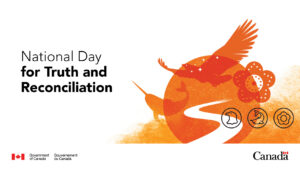
Equitable access to healthcare is crucial to ensuring that all individuals, regardless of their background or identity, receive timely, effective, and safe healthcare. However, the reality is that in Canada, access to healthcare remains unequal. As a healthcare provider, it is important to recognize and address these inequities. A vital aspect of this process is working toward truth and reconciliation within the healthcare system.
Understanding Truth and Reconciliation
Truth and reconciliation, as defined by the Truth and Reconciliation Commission, entails continuously nurturing a relationship of mutual respect between Indigenous and non-Indigenous peoples in Canada. It involves acknowledging the wrongdoings of the past, taking responsibility for them, and committing to meaningful actions that lead to positive change. For healthcare professionals, providing culturally safe care is a crucial aspect of this journey.
Recognizing the profound impact of colonization and systemic racism on Indigenous peoples and marginalized communities is central to delivering culturally safe care. It requires a commitment to developing awareness and knowledge, acknowledging past injustices, and working toward healthcare practices that uphold the principles of equity and inclusivity.
The College of Pharmacists of Manitoba’s Commitment
The College of Pharmacists of Manitoba (CPhM) recognizes the importance of truth and reconciliation in healthcare and is taking proactive steps to address these issues.
One of the steps in CPhM’s truth and reconciliation journey was forging a partnership with the Indigenous Pharmacy Professionals of Canada (IPPC). This Indigenous-led association is devoted to supporting Indigenous pharmacy professionals and enhancing the quality of care provided to Indigenous patients. In partnership with IPPC, CPhM is developing the second webinar in a two-part mandatory continuing professional development series. These webinars, titled Indigenous Health: Webinar 1 and Pharmacy Practice Integration of Indigenous Health Standards: Webinar 2, were approved by CPhM’s Council and are intended for all pharmacy professionals for the current and upcoming practice year. These webinars aim to provide pharmacy professionals with practical learning experiences that seamlessly integrate Indigenous health into pharmacy practice.
Resources for Truth and Reconciliation
Please consider the following resources as a starting point or continued learning on your path to truth and reconciliation:
- Manitoba Indigenous Cultural Safety Training (MICST)
Enroll in the Winnipeg Regional Health Authority’s Manitoba Indigenous Cultural Safety Training (MICST) program, now available online. This course equips healthcare professionals to provide culturally appropriate care, addressing the history and diverse cultures of Indigenous peoples, the impact of colonization, and health disparities. Join discussions, journal entries, and engage with facilitators and peers in this 8-week, asynchronous training. - National Indigenous Cultural Safety Learning Series
Participate in a dynamic webinar initiative centred on anti-Indigenous racism, discrimination, and cultural safety. Guided by an Advisory Circle comprising Indigenous and non-Indigenous leaders from across Canada, this series offers a platform to explore the intersection of Indigenous experiences with various systems, such as healthcare, justice, education, and child welfare. Through interactive webinars featuring expert guest presenters selected by Advisory Circle members, you’ll gain insights into critical issues, foster meaningful dialogue, and promote social justice, advocacy, and empowerment. - National Centre for Truth and Reconciliation
Explore the National Centre for Truth and Reconciliation (NCTR), a dedicated hub for learning and meaningful dialogue. At NCTR, the stories and truths of Residential School Survivors, their families, and communities are respected and preserved, ensuring their safekeeping for future generations. NCTR’s mission extends to educating Canadians about the profound injustices endured by First Nations, Inuit, and the Métis Nation. This includes the forced removal of children to residential schools and the systemic abuse they experienced within these institutions. Delve into the history of residential schools, deepen your understanding, and engage in virtual educational sessions to foster awareness and reconciliation. - Beyond 94: Truth and Reconciliation in Canada
Experience an informative journey as you explore and track the progress of the Truth and Reconciliation Commission’s 94 Calls to Action. Beyond 94, launched by CBC News in March 2018, is a rich online resource resulting from a year of dedicated research, survivor interviews, and engagement with stakeholders and government representatives. This platform provides real-time updates on each call’s status and concise summaries. Delve into the site to uncover in-depth features, compelling short documentaries, and poignant accounts from residential school survivors.
The path toward truth and reconciliation in healthcare equity demands commitment, self-reflection, and collaboration. As pharmacy professionals, your role extends beyond the prescription counter; it encompasses a dedication to healing, equity, and inclusivity.
This September 30th, CPhM encourages you to actively participate in this journey, enhance your cultural competence, and ensure that every patient receives the quality care they deserve, regardless of their background. Together, we can make a meaningful impact on the path to healthcare equity and reconciliation.